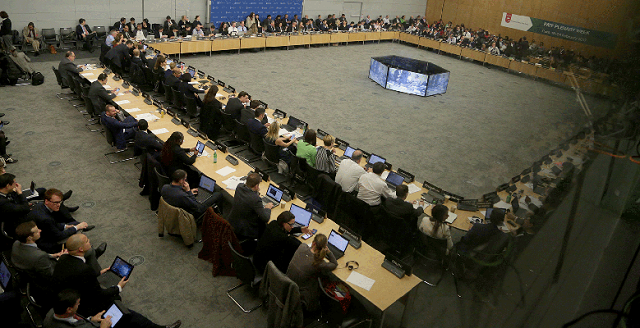FATF measures help make bank operations clean
JS Bank president says tightening of the monitoring regime is good for banking industry

The measures are helping banks make their operations clean.
PHOTO:FATF
"It (FATF move) is good for us (banks), the economy and from the perspective of tax payments," JS Bank President and CEO Basir Shamsie said while talking with the media on Friday.
The measures are helping banks make their operations clean. "Banks are recording all the suspicious transactions, doesn't matter how big or small they are and are reporting to the State Bank of Pakistan (SBP) on a regular basis," he said.
Pakistan enacts ambitious reforms to comply with FATF
It remained no more a difficult job to detect suspicious financial transactions through banks as "availability of modern technology and software have made the job of detectors easier", he said.
He said FATF measures are also helping change banking customers' mindset. "Customers' mindset is changing in order to declare exact earnings and pay taxes," he said.
Bank focuses on mortgage, SME financing
He said the low interest rate regime in the country has convinced banks to shift their business strategy to aggressive financing for corporates and individuals from investing significantly in government securities like T-bills and Pakistan Investment Bonds.
"The (benchmark) interest rate is set to increase by 100-150 basis points this year, but it will not bounce back to historic highs," he said. The central bank has increased interest rate by 175 basis points since January 2018 to 7.5% at present. It hit a historic high of 19.5% in October 1996.
NACTA says it is unable to prepare crucial report for FATF
"JS Bank has shifted its focus to aggressive mortgage financing and SMEs (small and medium-sized enterprises) financing in recent years," he said. The bank's mortgage financing portfolio stands at around Rs7-8 billion at present. "We are targeting to increase it to Rs10 billion in the next one year that remains a difficult task," he said.
The bank is also preparing to participate in the SBP-introduced subscribed mortgage financing as the central bank has already introduced a policy paper for the purpose recently. "Our bank has become the fourth or fifth largest in terms of SME financing," he added.
Besides, it was also actively involved in auto and agriculture financing. Its outstanding agri-financing has reached Rs10 billion, he said.
Published in The Express Tribune, September 8th, 2018.
Like Business on Facebook, follow @TribuneBiz on Twitter to stay informed and join in the conversation.


















COMMENTS
Comments are moderated and generally will be posted if they are on-topic and not abusive.
For more information, please see our Comments FAQ